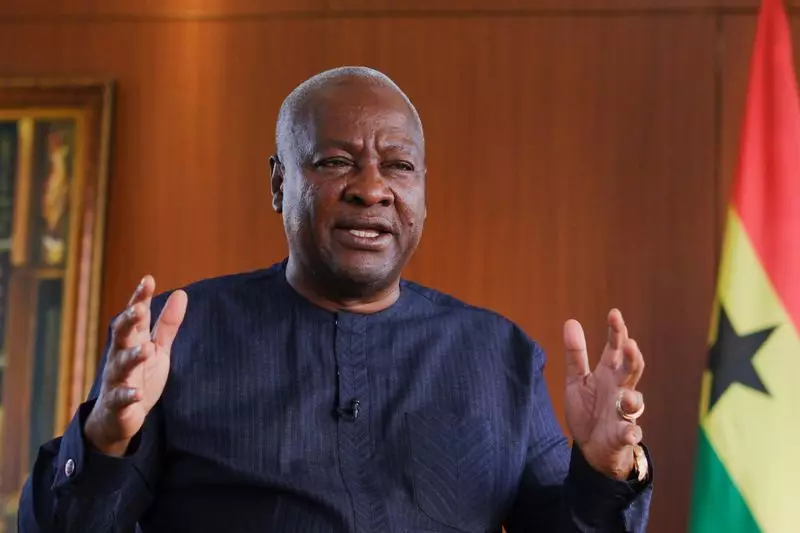In the wake of Ghana’s recent presidential elections, the nation stands at a critical juncture, tasked with addressing severe economic challenges while navigating the complexities of its relationship with the International Monetary Fund (IMF). The newly elected President John Dramani Mahama has committed to maintaining a partnership with the IMF, although he emphasizes the need for a thorough review of the existing $3 billion rescue package. His approach suggests a focus on mitigating economic hardships, particularly through prudent management of state expenditures and revitalizing the beleaguered energy sector.
Mandate for Change
Elected with a significant majority, garnering 56.55% of the votes, Mahama inherits a nation grappling with its most severe economic crisis in decades. The post-election atmosphere is one of cautious optimism; however, the realities on the ground reveal a populace beset by inflation and a depreciating currency, prompting urgent calls for effective governance. Vowing not to discard the IMF agreement outright, Mahama proposes an ambitious revision of the program aimed at tailoring it to better reflect the current socio-economic landscape.
Mahama’s administration recognizes the necessity of reforming the financial structures that govern the nation’s economic resilience. This includes negotiating loopholes within the existing deal that may permit a more flexible frame for fiscal policies, thereby allowing for adjustments that resonate with the economic realities faced by ordinary Ghanaians.
The high inflation rate in Ghana has become a critical issue that Mahama is poised to tackle head-on. Riding on the momentum of the recent electoral victory, he asserts his resolve to directly address soaring prices that have burdened the middle and lower classes. His strategic focus will involve fiscal discipline and a reallocation of resources that prioritize the welfare of citizens over bureaucratic inefficiencies.
In doing so, Mahama aims to enact policies that stabilize the currency, which has fluctuated dramatically, affecting import prices and consumer confidence alike. By ensuring that economic benefits trickle down to the working populace, he seeks to alleviate the pervasive cost-of-living crisis that threatens societal stability.
Among the most pressing challenges is the energy sector, which Mahama has characterized as a critical concern for national growth. The Electricity Company of Ghana (ECG), labeled as the “sick man” of the energy value chain, requires urgent intervention. The lack of consistent energy supply not only hampers productivity but also exacerbates the economic plight of businesses struggling to remain operational amidst ongoing power outages.
Mahama’s commitment to revamping the energy sector includes seeking solutions that go beyond mere patchwork fixes. His administration intends to explore sustainable energy strategies that enhance efficiency and reliability, ultimately driving down operational costs for businesses while fostering a conducive environment for investment.
A significant theme in Mahama’s discourse centers around the issue of excessive government spending. He has openly critiqued the prior government’s fiscal strategies, particularly the “multiplicity of taxes” that have entangled businesses and dissuaded investment. Mahama’s goal is to streamline expenditures by examining and eliminating waste within governmental departments—all while ensuring that politicians, including himself, adhere to the same fiscal prudence expected from the general populace.
His expectation that leaders should share the burdens of economic challenges resonates with citizens and reflects a transparent governance model that promotes accountability.
John Dramani Mahama’s re-election heralds a proactive approach to addressing Ghana’s pressing economic woes. By reaffirming commitment to the IMF while advocating for necessary reforms, he positions himself as a leader who is not only attuned to the fiscal complexities of governance but also sensitive to the lived experiences of Ghanaians. His strategic vision underscores the necessity for comprehensive reforms in both the energy sector and public expenditure practices to foster a robust and inclusive economic recovery. As Ghana navigates this pivotal moment, Mahama’s leadership may well determine the future trajectory of its economy.

